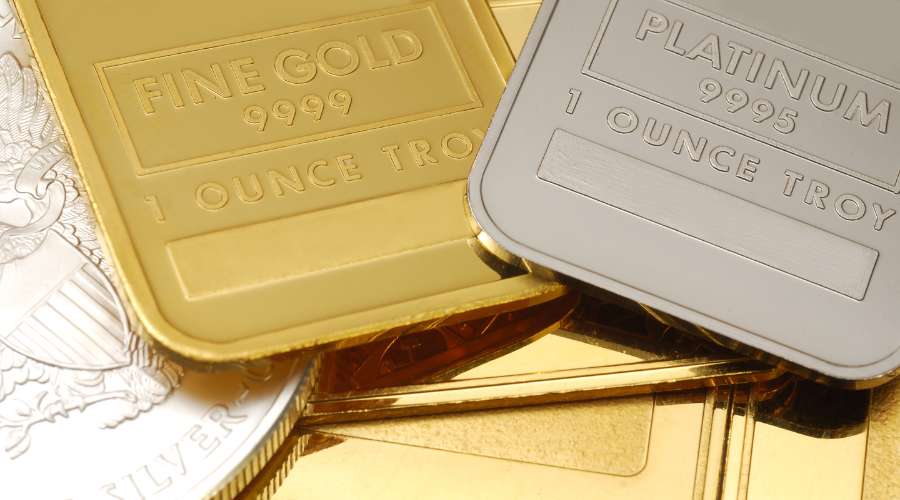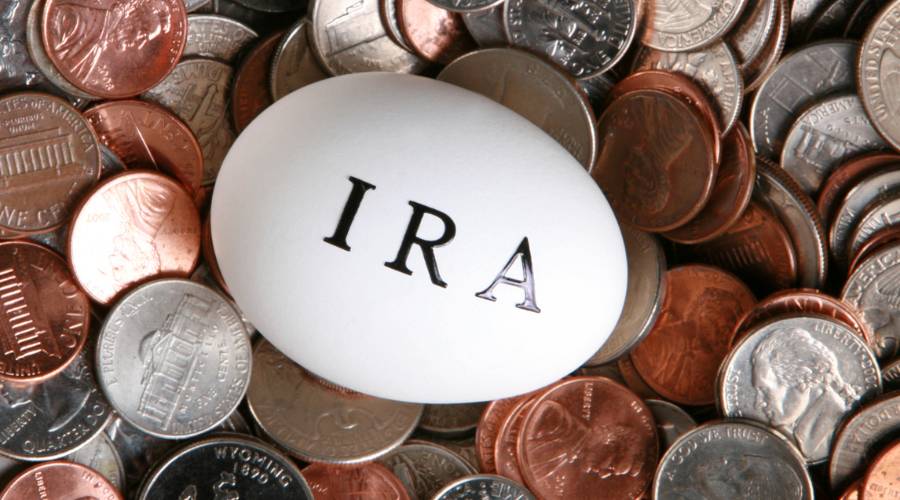Investing in precious metals can be a great way to diversify your portfolio and protect your wealth. However, with great investment opportunities comes the need to be aware of the associated taxes.
Capital gains tax is one of the most common taxes associated with investing in precious metals, but fortunately, there are several strategies you can use to avoid it. This article will explain how you can use certain legal methods to avoid capital gains taxes on your precious metal investments.
From tax-advantaged retirement accounts to gifting or donating your asset, there are several ways you can minimize your tax liability when investing in precious metals. With the right strategies, you can maximize your profits and ensure you're paying the least taxes possible.
If you are interested in investing, make sure to take a look at our highest recommended companies for this year!
>> Click Here For A List Of The 5 Highest Recommended Precious Metals Investment Companies <<
What Are Precious Metals?

Precious metals are rare, naturally occurring metallic elements with high economic value. They include gold, silver, platinum, palladium and ruthenium. Precious metals are often used to make coins, jewelry and other objects of beauty and value. Although rare, they are also highly sought after for their unique properties.
Gold is the most well-known precious metal valued for its bright yellow color and malleability. Gold has been used for thousands of years as a currency and is still used today to back many currencies and financial instruments.
Silver is also a popular precious metal due to its affordability and use in jewelry, electronics and photography. Platinum and palladium are quite valuable because of their resistance to corrosion and heat. They are used in industrial settings and medical applications.
Ruthenium, the least known of the precious metals, is mainly used for its hardening properties in alloys and as a catalyst in chemical reactions.
Precious metals are great investments because they hold their value over time and can be easily traded. They are also popular with collectors because they can be fashioned into beautiful pieces of art or jewelry.
What Is Capital Gains Tax?

Capital Gains Tax is a tax levied on the profit from the sale of assets such as stocks, bonds, and real estate. It is important to note that not all types of investments are subject to capital gains tax. For example, interest earned on savings accounts typically isn't subject to this tax.
Regarding capital gains tax, there are two main categories: long-term capital gains and short-term capital gains. Long-term capital gains refer to profits from selling an asset that has been held for more than one year. Short-term capital gains refer to profits from selling an asset held for less than one year.
The amount of tax you pay on capital gains depends on your marginal tax rate. Generally, those with lower income levels pay a lower capital gains tax rate. For example, if you are in the 10% tax bracket, you may pay no tax on long-term capital gains. On the other hand, those in the highest tax bracket may pay up to 20% on long-term capital gains.
It's also important to note that how you file your taxes can affect the amount of capital gains tax you pay. If you file as a single or head of household, you may be eligible for a 0% tax rate on long-term capital gains. However, if you file jointly with your spouse, you may be eligible for a 15% tax rate on long-term capital gains.
Understanding Capital Gains Tax on Precious Metals
If you're investing in precious metals, you may wonder how capital gains are taxed. The good news is that it's not as complicated as you think! In the U.S., capital gains taxes on gold and silver investments are calculated differently than on other investments.
The first thing to remember is that capital gains on precious metals are taxed lower than ordinary income. This rate can range from 0-28%, depending on your income bracket. For example, if you fall into the 15% tax bracket, your capital gains rate would be 0%. However, if you fall into the 28% tax bracket, your capital gains rate would be 28%.
In addition, other factors will determine how much tax you'll pay on your precious metal investments. The most crucial factor is whether the metal was held for more than one year or less than one year.
If you hold the metal for more than one year, you'll receive the long-term capital gains rate. This rate can range from 0-20%, depending on your income bracket.
On the other hand, if you hold the metal for less than one year, you'll receive the short-term capital gains rate. Depending on your income bracket, this rate can range from 10-39.6%.
You should also be aware of the net investment income tax (NIIT). This tax applies to certain taxpayers with high levels of taxable income. If you fall into this category, you'll be subject to an additional 3.8% tax on your net investment income, including capital gains from precious metals.
Strategies to Avoid Capital Gains Tax on Your Precious Metal Investments
If you're looking to invest in precious metals, one of the best ways to keep more of your money is to avoid capital gains taxes. Here are a few simple strategies you can use to prevent triggering a taxable event on your investments:
Invest in Tax-Advantaged Accounts
Tax-advantaged accounts are special investment accounts that provide certain tax benefits to investors. These accounts are typically offered through employers or financial institutions and come with specific rules and regulations that must be followed.
For instance, some accounts may allow you to invest up to a certain amount each year without being subject to capital gains taxes. Other accounts may provide tax deductions for contributions made to the account or other benefits such as the ability to make withdrawals from the account without paying taxes.
When you invest in a tax-advantaged account, such as a 401(k) or an individual retirement account (IRA) like a gold IRA, you will likely be able to defer paying capital gains taxes until you withdraw the money from the account. This can be especially beneficial if you plan to hold onto your precious metal investments for a long time since you won't have to worry about paying taxes on those gains until the future.
Tax-advantaged accounts like gold IRA may also allow you to invest in a wide range of assets, including precious metals. This means you can diversify your investments while taking advantage of the tax benefits associated with these accounts.
Hold Precious Metals for Over a Year
The Internal Revenue Service considers any investment held for more than 12 months to be a long-term asset and taxes it at a much lower rate than short-term holdings. This means that if you acquire gold, silver or other precious metals and then hold them for more than a year, you won't be subject to capital gains tax when you eventually sell.
It's also worth noting that the cost basis of your precious metals is adjusted for inflation when you file your taxes. This means that even if the value of your investment has not gone up significantly over its holding period, the IRS will adjust the cost basis of your investment so that the total capital gains are reduced.
Make Charitable Donations
When you donate your metals to a qualified charity, you can deduct their fair market value from your taxes. This reduces your tax burden and allows you to make a meaningful contribution to an organization you believe in.
When donating your metals, ensure you obtain a receipt from the charity with details of the items donated. This will prove your donation and help you claim the deduction on your taxes. When donating, you should also note any associated costs such as appraisal or shipping costs. These will be deductible as well.
It's important to remember that the donated metals must be in good condition and that you will need to have them appraised to determine their fair market value. Also, hold onto your donation receipts for at least three years if the IRS questions your deduction.
Utilize Tax Loss Harvesting
Tax loss harvesting allows you to offset any capital gains with capital losses. In other words, if you realize a capital gain on one of your investments, you can use the losses from another investment to reduce the taxes you owe.
For example, let's say you have two investments in precious metals. You sell one and realize a $2,000 gain. If you have a $2,000 loss from another investment, you can offset the gain and only be responsible for taxes on the difference.
To get the most out of tax loss harvesting, it's important to understand how it works and when it's available. First and foremost, you must have realized a loss before you can take advantage of it. Additionally, tax loss harvesting can only be used to offset gains on investments of the same type. That means you can't use losses from one precious metal to offset gains from another.
You also need to be aware of the wash sale rule, which states that if you purchase the same security within 30 days of selling it and realizing a loss, you cannot claim the loss for tax purposes.
Finally, it's important to remember that any losses you realize can only be used to offset capital gains. They cannot be used to reduce your income tax liability.
Invest in Precious Metals ETFs
Precious metals ETFs are exchange-traded funds that track the price of a specific precious metal. They are similar to stocks but don't generate any capital gains tax when you sell them. This makes them an excellent option for investors who want to invest in precious metals without incurring additional tax liabilities.
Another great way to avoid capital gains taxes on your precious metal investments is to buy them in an IRA or 401(k). By investing in a retirement account, your earnings from the investment are not taxed until you withdraw them. This allows you to build wealth without worrying about capital gains taxes.
Utilize a 1031 Exchange
A 1031 exchange is a great strategy that allows investors to defer taxes on the sale of a property by exchanging it for another "like-kind" property of equal or greater value.
This exchange works for all investment properties including real estate, art, and, yes, even precious metals. When you sell a precious metal asset like gold or silver, you can use the proceeds to purchase another similar asset—and delay the payment of capital gains taxes until you eventually liquidate the new asset.
The process is relatively straightforward and the IRS has specific rules and regulations you need to follow to qualify. One key requirement is to identify the replacement asset within 45 days of the sale and complete the entire exchange within 180 days.
Gold IRA Is the Safest Gold Investment for You

A gold IRA, sometimes called a Precious Metals IRA, is an Individual Retirement Account (IRA) in which you can invest in physical gold, silver, platinum and palladium. With a Gold IRA, investors can diversify their retirement portfolio with a long-term store of value and hedge against inflation.
A gold IRA is a type of self-directed IRA, which means that the account owner controls the investments made within the account. Unlike other types of IRAs, self-directed IRAs are not limited to traditional investments like stocks and bonds. The self-directed IRA can be used to make alternative investments, such as precious metals, real estate, and private placements.
When investing in a Gold IRA, you can purchase physical gold and store it in a depository or custodian. You can also invest in gold ETFs (Exchange Traded Funds) and gold mutual funds or buy gold mining companies' stocks. You can use the proceeds from the sale of gold to reinvest in other investments such as stocks, bonds, or real estate.
The great thing about a Gold IRA is that it lets you control your retirement investments. You can choose what type of gold you would like to invest in and how much you would like to invest. You don't have to worry about the market fluctuations that can occur with other investments since gold is a tangible asset that holds its value over time.
There are plenty of benefits to adding gold to your IRA! Here are a few that make it a great choice:
Types of Gold IRA Accounts

There are three main types of Gold IRAs available:
No matter which type of Gold IRA you choose, you'll have the security of knowing that your retirement savings are backed by physical gold.
What Is the Procedure for Opening a Gold IRA?
The first step to opening a gold IRA is to find a custodian. A custodian is a financial institution that will handle the paperwork associated with the gold IRA and facilitate the transactions for you. There are many custodians available; make sure to do your research and find one that is reputable and has a good track record.
Once you have chosen your custodian, you will need to open a self-directed IRA account. This is typically done online and is relatively straightforward. You will need to provide basic personal information such as your name, Social Security number, address, and information about your employment and investment history.
Once your account is set up, you can begin making purchases. Your custodian will help you find gold coins or bullion to purchase, and they will also assist you in transferring funds from your other accounts into your gold IRA. Once you have made your purchase, the custodian will store the gold in a secure depository.
Once you have purchased your gold, you must complete some additional paperwork. This paperwork will include a form to report the purchase of your gold to the IRS. You will also need to review and sign documents regarding the storage of your gold.
Finally, you will need to review your investments periodically to ensure your retirement savings are on track. Your custodian can help you monitor your investments and make any necessary adjustments.
Bottom Line
Investing in gold has many benefits; one is avoiding capital gains tax. A great way to do this is by investing in a gold IRA account, which allows you to invest in gold without paying capital gains taxes. This is a perfect option for diversifying their investments and protecting their wealth.
Our highly recommended companies can help you set up a gold IRA account and provide the best services and advice on how to get the most out of your investment. They will help you understand the process and guide you through every step, ensuring you make the right decisions and maximize your profits. Furthermore, they offer some of the lowest prices on the market and guarantee your satisfaction.
Don't forget to check out our top recommended companies before investing!
